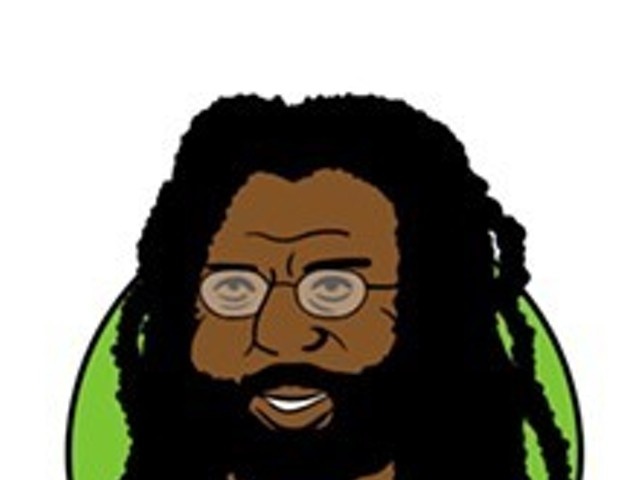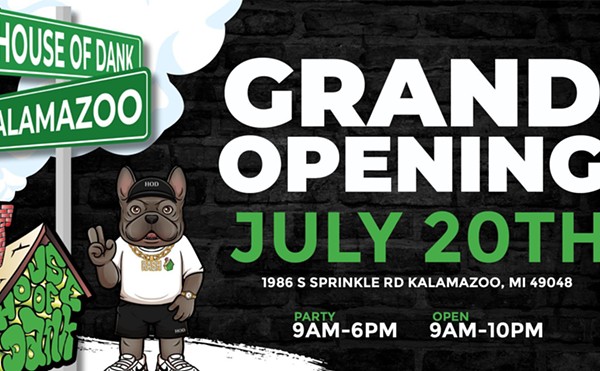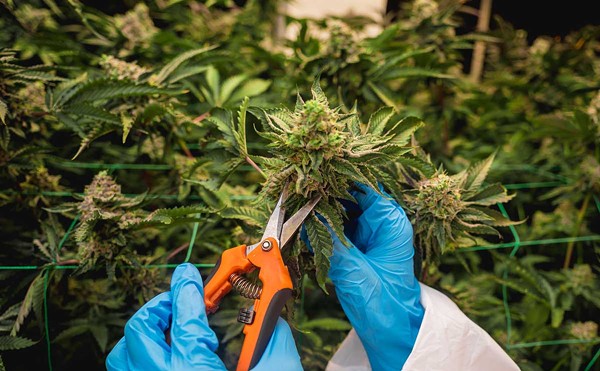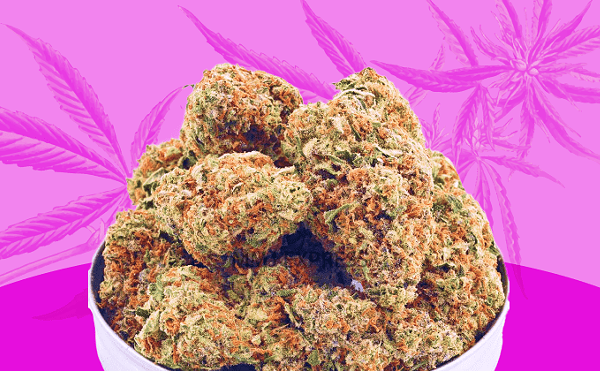The original Bena Riamba — or "Sons of Hemp" — lived in equatorial West Africa in the 1800s. They were a cannabis cult that had spiritual and medicinal uses for the plant. The Bena Riamba were credited with changing the warlike nature of the Bashilange tribe from which they emerged.
Detroit's Sons of Hemp has also cast a favorable eye on cannabis. According to a press release they recently sent out, the "Sons of Hemp is ... a diverse group of herbalists, caregivers, and medical patients in the hemp/cannabis industry whose sole purpose is to unite, educate, create opportunities and support ownership in every facet of the hemp and cannabis industry."
According to Ron Jones, founder of the organization, the Sons of Hemp grew from a series of informal coffee meetings with various people in the industry. About a year ago when the city began its push to regulate and shut down dispensaries, they were concerned that the few black-owned establishments would get squeezed out of business.
"Because I'm a caregiver, I saw that all over the country we minorities had no representation on the business side," Jones says. "In seeing that and then seeing what was happening in the city of Detroit, we needed to come together, pool our resources, educate people and develop good relationships. This group of like-minded individuals saw this industry was here and going to stay. We recognized that unless something changed that indigenous Detroiters were not going to be part of it — another billion-dollar industry that we don't have ownership in."
So they formed Sons of Hemp (SOH). The name came up because someone in the organizing circle happened to have read an article about the Bena Riamba and brought that to the table.
"We came across the meaning of that culture," says Jones. "It was us. When you research it you find it's about love, peace, coming together in unity, a family in harmony. It was something that brought them together. It's the same thing here; were just coming together."
The group has been around for less than a year, and to date the biggest thing it's done is bring a suit against the city of Detroit alleging that the zoning ordinance regulating dispensary locations is unconstitutional. That was filed in the spring and the case is still alive in circuit court.
While that issue kicks around, SOH is moving forward with other issues. Most crucial at this point are plans for a cannabis school in Detroit. Like any other industry, cannabis businesses can use an incubator to help nurture them along the way. SOH intends to focus the school around Michigan cannabis law, cultivation, how to successfully run your cannabis business, and the endocannabinoid system.
The endocannabinoid system is a series of receptors in the human nervous system that interacts with the cannabinoids in marijuana. These receptors are why we feel the effects of the plant. It was discovered in the late 1980s by researchers trying to figure out the mechanism through which marijuana affected people. They also discovered that the human body naturally produces its own endocannabinoids. Although your doctor probably doesn't know much about cannabinoids, they are the keys to the medical side of marijuana. They are what researchers experiment with and they are the reason little kids with epilepsy can reduce their seizures from hundreds each week to a handful.
"Instead of budtenders, we're going to have an herbalist who specializes in the endocannaboid system," says Jones. "That's the concentration, learning about that system."
The idea for a school comes is a natural outgrowth of SOH's focus on education. The more factual information people have about marijuana, the lesser the stigma against people who use it. And that stigma, probably more than anything else, keeps a lot of African Americans from trying to get into the cannabis business. Well, that and the fear of getting busted. It is well known that although minorities use marijuana at about the same percentages as whites, minorities get arrested and go to jail for it at much higher rates. That factors in when someone considers getting into the business, or speaking up in support of marijuana in the community at all.
"To be honest with you, I'm not comfortable, but it has to be done," Jones says. "We want to protect people's rights. We want people who are interested, who feel like they want to come out, we're all doing it together. We all feel that we are in the right lane and we are helping people. That takes a little bit of the burden off."
So maybe it takes a village to get into the marijuana business, or at least a school. Certainly there are people — supporters and haters — who need schooling on the subject. Oaksterdam University, the California medical marijuana trade school, attempted a Michigan-based spinoff that didn't take off. Maybe Detroit can be the place where education fosters a solidly rooted industry.
And it's all the better that SOH is focused on helping to bring blacks into the business. The Bena Riamba called their land Lubuku, which means friendship. Maybe Detroit's Bena Riamba can bring more cannabis friendship to the city.
SOH can be contacted at [email protected].
We don't smoke ... oops, we do — Developing your own strain of marijuana is not that difficult. Basically, if you get two different strains to mate, whatever grows is your unique strain. Now getting a great strain and reproducing it is a little harder. Then getting other people to want that strain is a next step. That's where celebrity branding comes in. The latest (and I mean "late" as in "dead") celebrity to have his name associated with a brand of marijuana is country music star Merle Haggard, who died this past April. Merle Haggard's family is working with a Colorado company to release a line of connoisseur strains called Merle's Girls. Haggard — who got famous singing "we don't smoke marijuana in Muskogee" — has apparently been at it. He reportedly initiated negotiations on the deal before he passed on to honky-tonk heaven.
Merle joins Snoop Dogg, Bob Marley, Tommy Chong, Willie Nelson, Ghostface Killah, Wiz Kalifah, and Melissa Etheridge, whose names also appear on a cannabis product. The practice looks lucrative. The Canadian Canopy Growth Corp. saw its stock rise to an all-time high recently after it announced a partnership with Snoop to release a line of Leafs by Snoop in the Canadian market this month. Medical marijuana is legal across Canada and the government is working on a plan to roll out legal recreational use.
Keeping it clean — If you already use Dr. Bronner's soap, then you already use a hemp product. But the tingly soap people apparently want you to find other uses for cannabis. Dr. Bronner's announced that it has donated $660,000 to marijuana legalization campaigns in California, Massachusetts, Maine, Arizona, and Nevada. A Dr. Bronner's press release stated: "The expected sweep of these states will exert enormous pressure on federal lawmakers to end the racist outdated policy of cannabis prohibition, that shreds productive citizens' lives and families for no good reason, and focus law enforcement resources instead on actual crime."
Couldn't have said it better myself.






